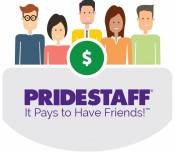In the workplace, favoritism refers to any situation where someone in a leadership position shows preferential treatment toward one employee over others – unrelated to job performance and instead occurring as the result of a personal bond shared between the two. As a result, the “preferred’ employee may receive more advanced or plum projects or even promotions, over others who have equal or better qualifications. Or, they may not be reprimanded as severely – or at all – for tardiness, missing deadlines, or similar poor behavior.
Favoritism can take many forms and can be intentional or accidental. But the fact remains: Every employee deserves equal treatment. If left unchecked, playing favorites can hurt morale, productivity and retention; fuel conflicts; negatively impact company culture, and even cross the line into harassment or discrimination.
What happens when the boss plays favorites?
If the boss plays favorites, employees’ motivation and engagement are affected – and not in a good way. Favoritism at work:
- Leads to resentment, disrespect, and a loss of trust.
- Can break teams apart. And this ultimately hurts productivity and your company’s bottom line.
- Has a similar negative impact on communication, employee relationships, and work performance.
- In worst case scenarios, leads to increased turnover rates and may lead to discrimination-related lawsuits.
Another consideration: Rewards and promotions should be based on objective criteria. Managers who engage in favoritism are not allowing their teams to grow or reach their full potential.
How can you avoid favoritism at your workplace?
Favoritism at work does not paint a pretty picture. To avoid it, create a workplace culture where everyone has an equal voice and chance of success.
- Treat everyone the same. It’s that simple. Establish a universal process to assess your team members. Dedicate equal time and attention to each employee and leave personal preferences aside.
- Use objective criteria to monitor and measure performance. As you do so, keep communication lines open. Everyone should feel as though they have a voice and are comfortable sharing their opinion. For instance, when you announce an employee’s promotion, be clear about why the decision was made and allow questions and comments.
- Be inclusive. Think inclusively as you dole out projects and assignments. When you’re picking a team, keep this in mind and encourage your reports to speak up and have their say. Make meetings more participatory. It may help to divide people into small subgroups so everyone has an opportunity to provide input.
- Be empathetic. Even if there’s a person on your team who you simply can’t stand or find chemistry with, do the best you can to develop empathy for them. It’s not necessarily about making them feel good, but rather about recognizing them and appreciating their feelings.
It’s not always easy being the boss.
The workforce development experts at PrideStaff Modesto can help as you address management training, building equitable and successful HR policies and procedures, and avoiding the missteps involved if you miss a beat. We can also help you hire and retain your inclusive, results-oriented team, whether it’s through direct recruiting, temp-to-hire or temporary staffing. Read our related posts or contact us today to learn more.



